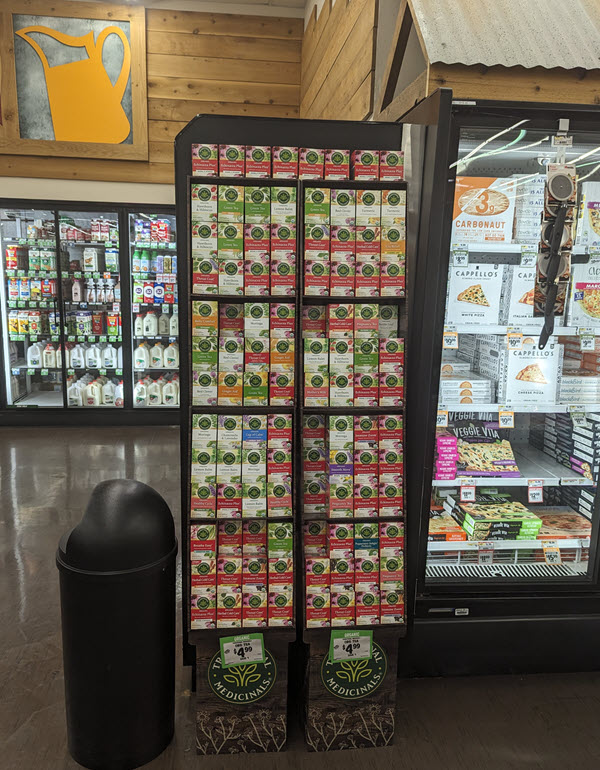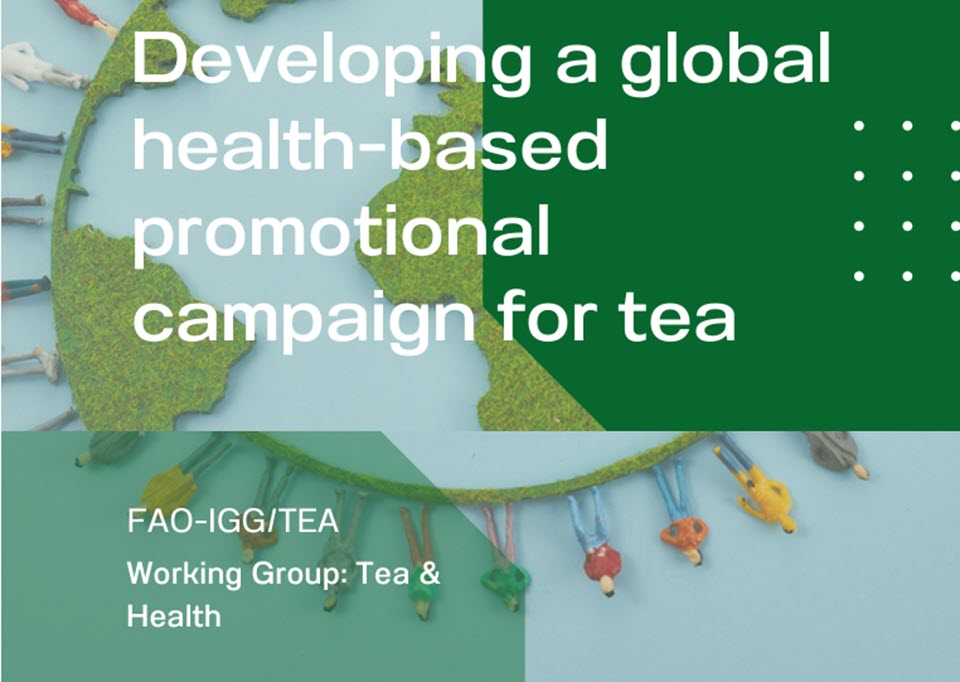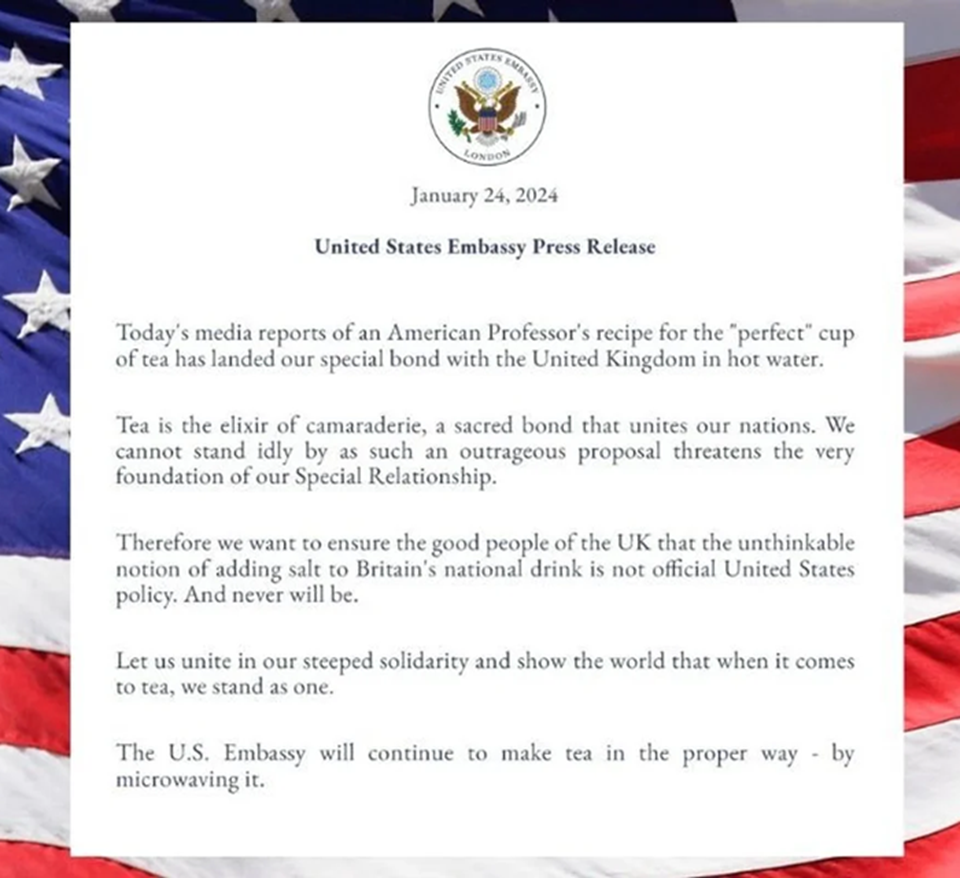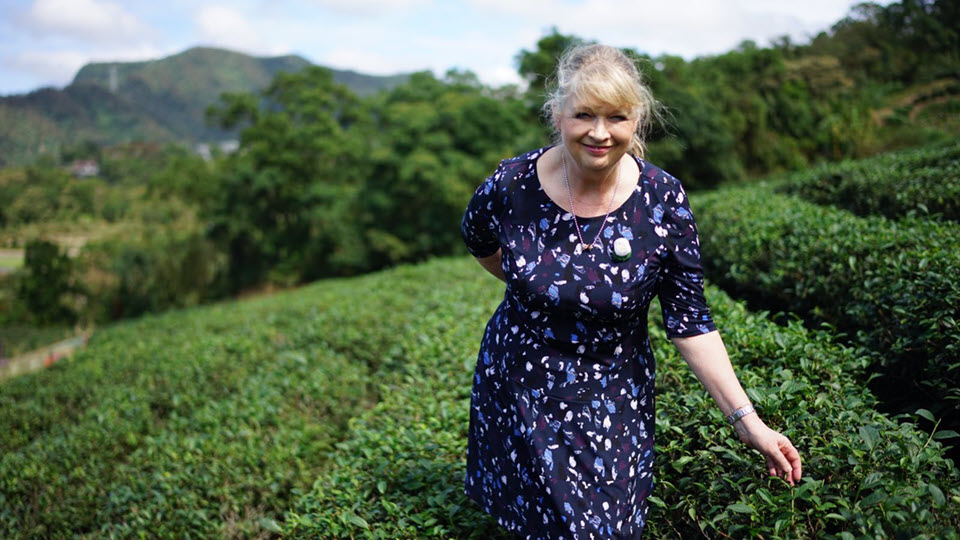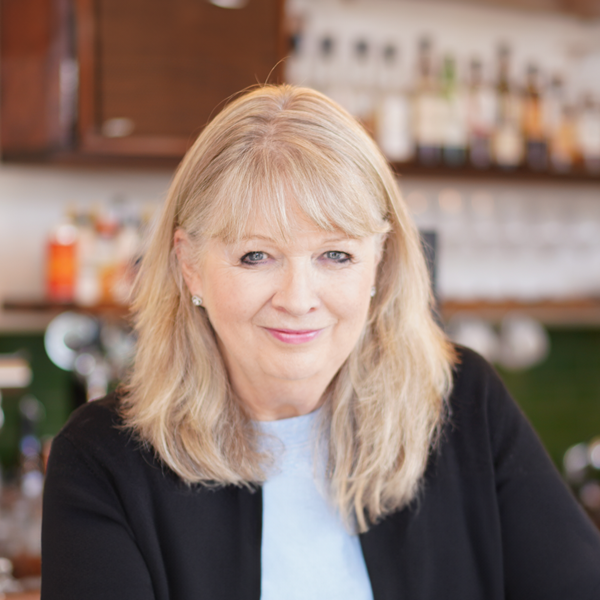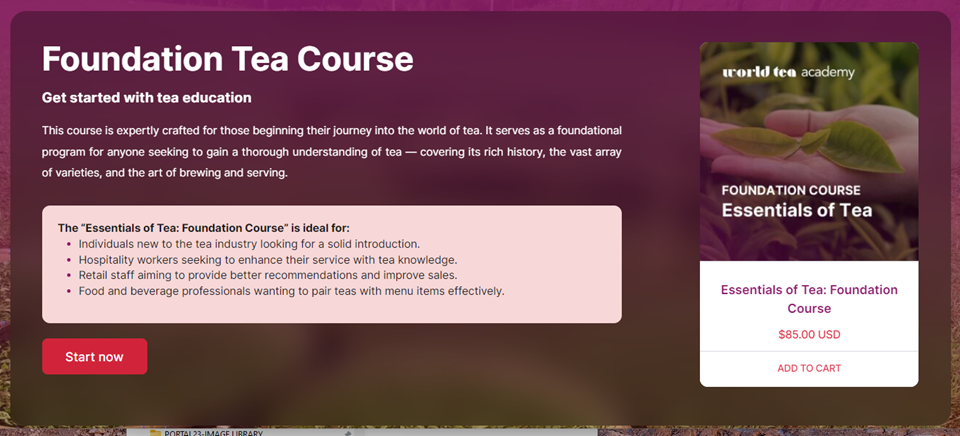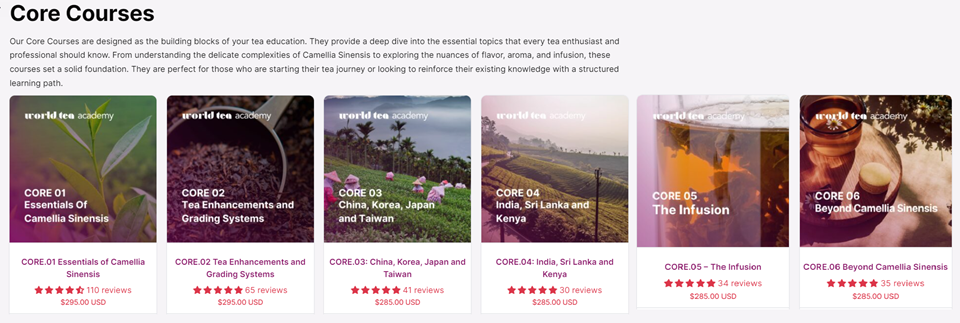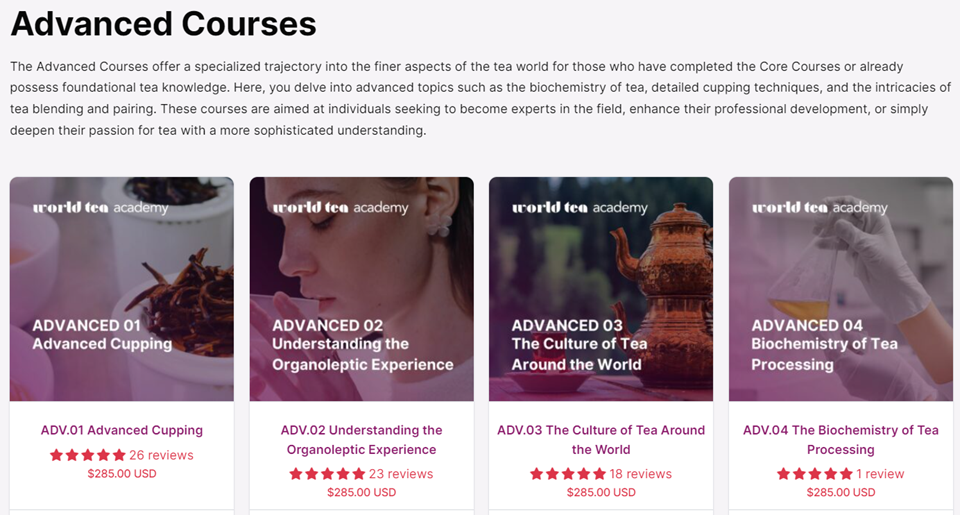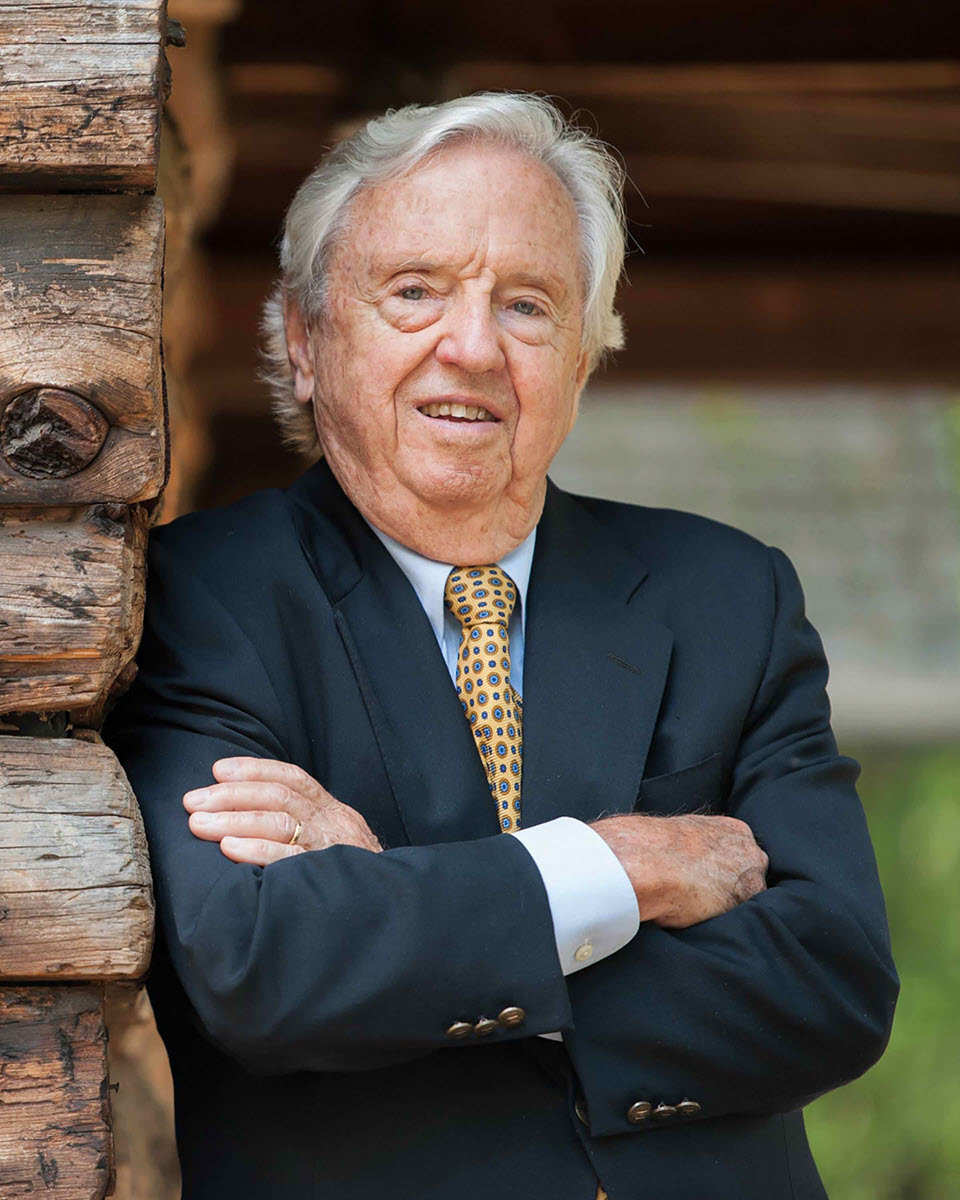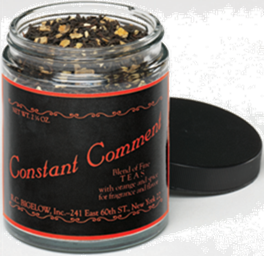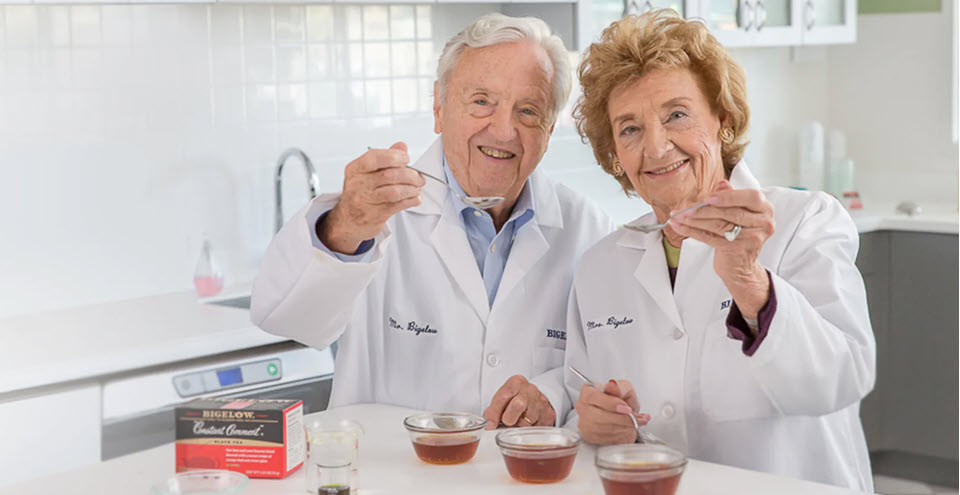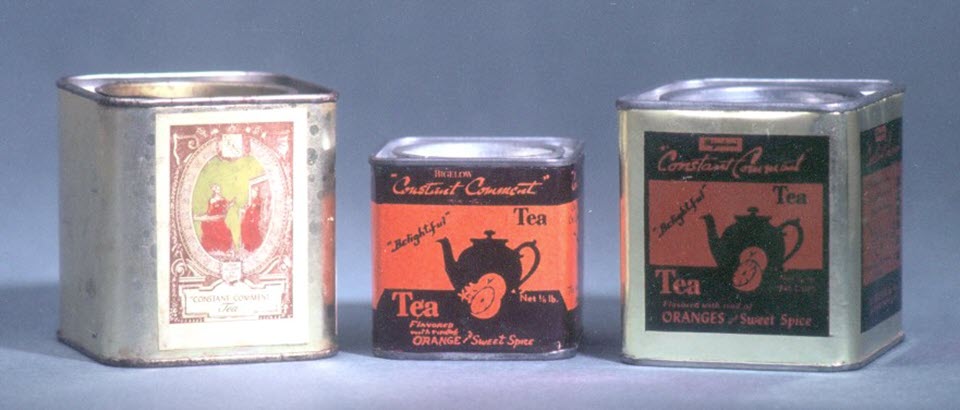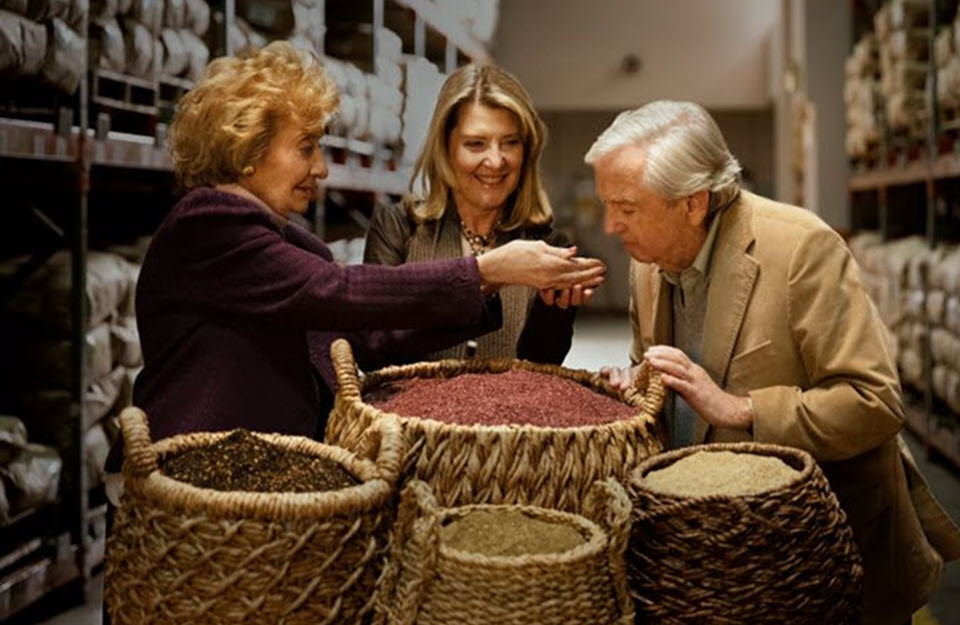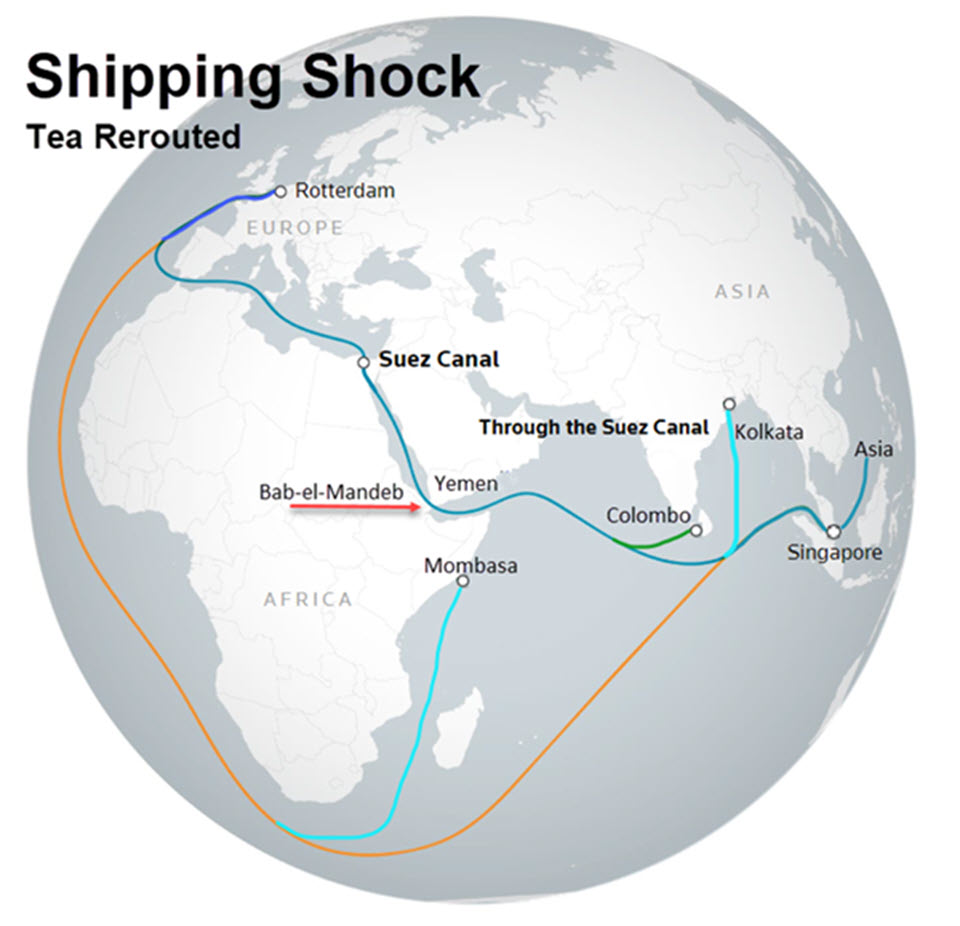Traditional Medicinals is a Northern California-based botanical wellness brand rooted in modern herbalism that inspires active connection to plant wisdom in serving people and the planet. Formulations of more than 60 teas, lozenges, and capsules are strictly limited to science-based botanical ingredients without added flavors and in quantities that meet pharmacopeia standards for efficacy. The company’s single blends and single-herbal infusions are organic, sustainable, and ethically sourced. Traditional Medicinals was launched in 1974, and in recent years, the company has experienced exponential growth as consumer demand fills the sails, expanding distribution from niche natural food stores to mass market outlets. Joining us is Chief Marketing Officer Kristel Corson. She says, “Our teas have been around what seems like forever, but herbals are having their moment, and it is important to educate folks, not just on what has been, but on what medicinal herbalism is today, and it’s very different.”
Listen to the interview
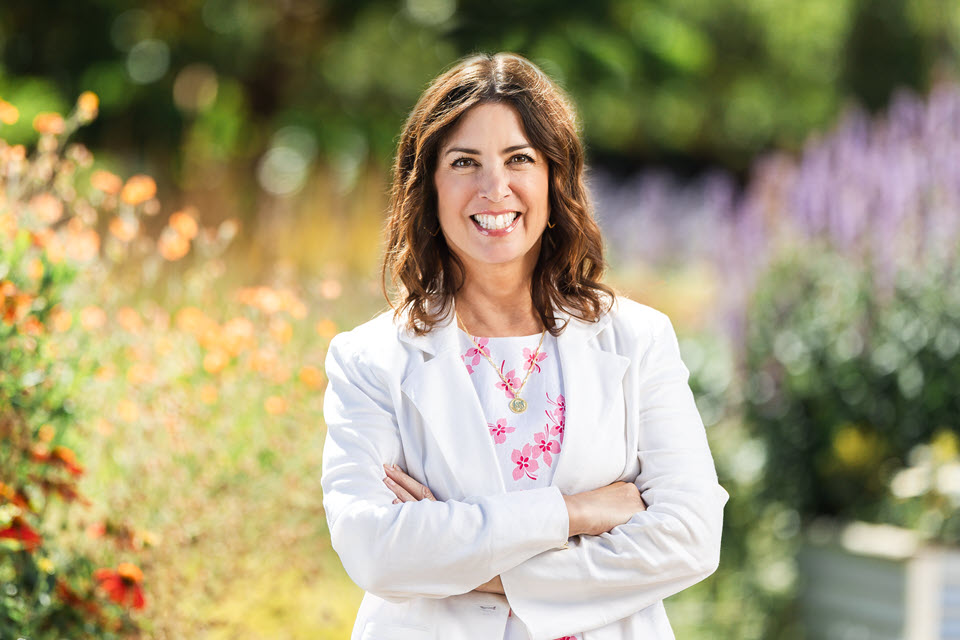
Harnessing the Power of Plants
By Dan Bolton
Kristel joined Traditional Medicinals in 2022 “to focus on building the brand for its next phase of growth, rooted in purpose, and delivering amazing products that harness the power of plants and their many wellness properties.”
She spent more than 30 years helping beloved brands like Clif Bar, Jamba Juice, Clover Sonoma, and LeapFrog exceed business objectives through a combination of innovative new product launches, strong retail presence, and marketing programs that create positive, lasting consumer connections.
As chief revenue officer, Kristel helped transform the century-old Clover Stornetta brand from a values-based regional dairy to a nationally recognized conscious-consumer and mission-driven product innovator. Kristel earned a BS in Business Administration with a concentration in Marketing from San Francisco State University.
“We’ve got a full innovation team thinking up all the different ways to bring these amazing herbs to consumers, make them more accessible, and help them understand the benefits that they can bring.”
– Kristel Corson
Dan Bolton: I am delighted, Kristel, that you joined us today on the Tea Biz Podcast. Will you tell us just a little about yourself?
Kristel Corson: I’ve worked on consumer-packaged goods for over 30 years. About 20 years ago, I found my passion through working for brands driven by multiple bottom lines, more purpose-driven brands that have an impact, and a mission to do better in the world.
I started with Traditional Medicinals about 15 months ago, and they are the most purpose-driven, impact-driven brand out there, at least that I have come across.
It is primarily tea. However, our focus is plant medicine and bringing plant medicine out into the world in an accessible way to help with everyday wellness.
We’ve recently launched lozenges and are looking at different ways to bring this plant medicine, but our mainstay is teas. That’s what started the company about 50 years ago.
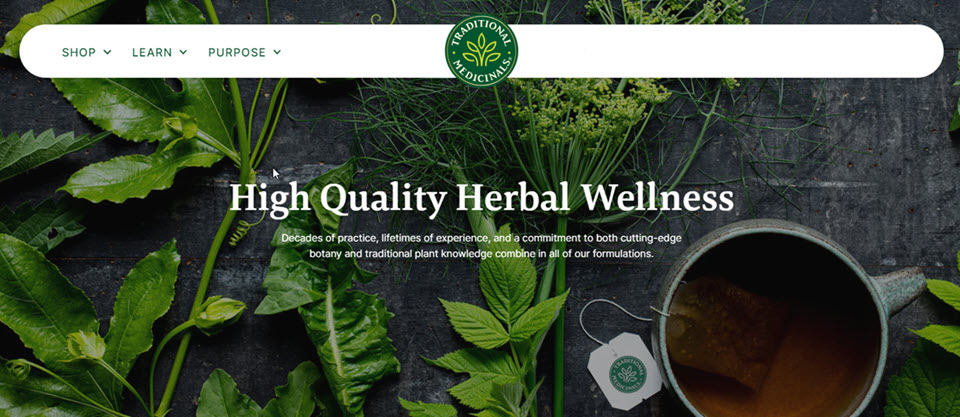
Dan: Good Housekeeping recently named Throat Coat a category winner in coffee and tea. The kitchen lab experts and more than 1000 consumer testers were tasked with finding the most innovative, high-performing products. They chose a tea that has been around since the 1970s. The citation by the judges encapsulates several modern trends: “Warm liquids can be soothing, and this blend from Traditional Medicinals is designed to support throat health. It smells sweet and like licorice. It’s also slightly woody. It’s organic, and the brand is B-Corp certified,” said Good Housekeeping’s team of experts.
Kristel: Consumers look to Good Housekeeping because they use consumer panels, they really do their research, and to have Throat Coat called out, as, you know, one of the best teas out there is amazing.
Throat Coat is a product that has been around almost since its inception. It wasn’t one of the original teas, but it came out soon after. The tea helps your throat while you’re sick or when you’re hoarse, but it’s a tea that’s just for overall throat health.
Throat Coat has been getting much recognition lately, but for many years, several artists out there, musicians in particular, seem to love Throat Coat.
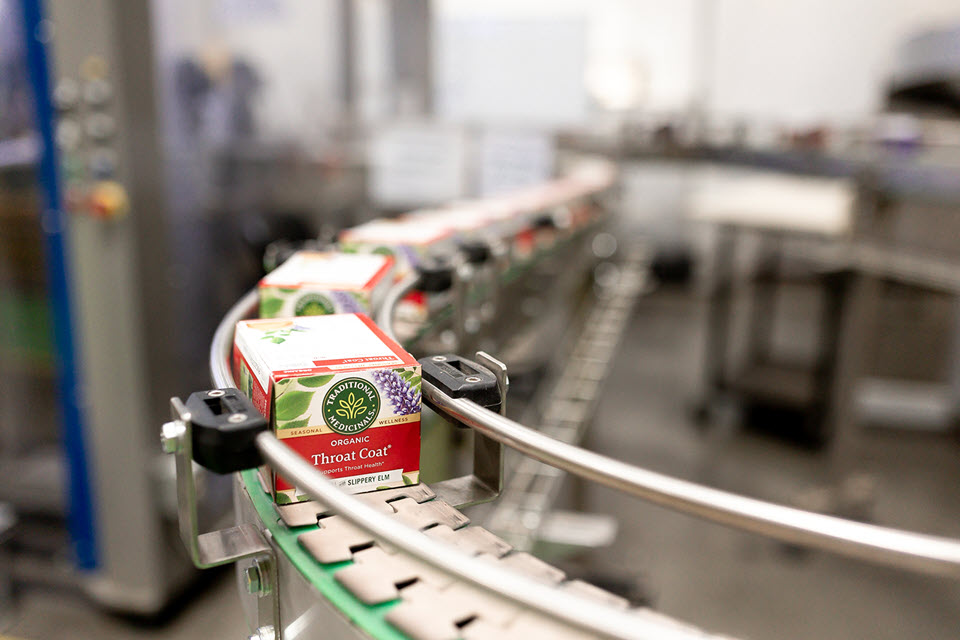
Dan: The uplift from niche natural grocery and health food stores to the mass market was underway before the pandemic but has since accelerated. What is propelling the brand forward?
Kristel: Well, Traditional Medicinals, as you noted, have always been rooted in plant medicine. We only use medicinal-grade herbs in our teas. We don’t use any flavorings or anything but the true herb.
This is one of the things we pride ourselves on in trying to introduce the true taste of herbs to consumers. We have a full staff of R&D [Research and Development] scientists and naturopath doctors who understand these herbs, their qualities, and their flavors.
We create our medicinal herbs, formulas, and blends like Throat Coat, whose key ingredient is the slippery elm, a tree bark from Appalachia that soothes throats. It’s a blend incorporated with many other herbs that provide medicinal benefits, like licorice, which also gives it a nice taste. And so we’re very proud that we can bring that efficacy to our teas with blends that consumers like as well.
Dan: In its Food Trends for 2024 report, Whole Foods Market named Traditional Medicinals as an example of a women’s health trend labeled “From Taboo to Top-of-Mind.”
“We’re seeing more brands making products to support periods, pregnancy, postpartum, menopause, and even sleep that address life stages and symptoms previously swept under the rug,” writes Whole Foods.
Traditional Medicinals co-founder Rosemary Gladstar was selling Mother’s Milk lactation tea 50 years ago. The line now includes Raspberry Leaf Tea for menstrual relief, Pregnancy Tea, and Morning Ease for morning sickness.
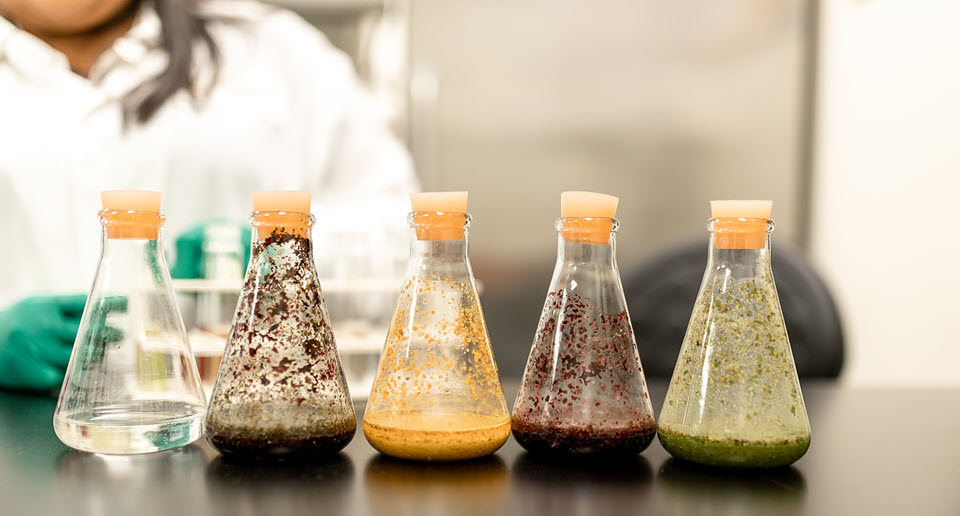
Kristel: Medicinal-grade herbs have been used for thousands of years to help women through the different stages of their lives. Herbs help with hormonal balance. You mentioned Mother’s Milk, which is one of our original teas. It helps women who are nursing to produce more milk. One of the most recent trends is an herb called raspberry leaf. That is our very popular tea to help women with their menstrual cycles.
One of the things we do at Traditional Medicinals is develop products that can become part of your everyday wellness cycle.
Going to the doctor and getting pharmaceutical drugs is necessary from time to time, but daily for overall wellness, herbs have a place in today’s world.
Dan: So, how’s business?
Kristel: Our business is going wonderfully. We continue to see double-digit growth, year on year. I think it is about being in the right time and place. Post-COVID, people have taken a hard look at their overall health and wellness and have made changes.
The younger generations are much more into plant-based products in general. Herbal tea is one of those. I think that herbal tea is something that consumers, for a relatively low cost, can bring into their daily lives and take better care of themselves.
What’s unique about Traditional Medicinals is how we source the product.
We’re organic, but many of our products are also Fairtrade certified. We try to bring to light how important it is for the producers and growers and the people who collect the herbs to be treated fairly. Within the retail space, consumers are asking for not only good quality products, but also products that are made fairly and ethically.
As we turn 50, we are seen as offering a product that connects with consumers’ needs. And when you connect with consumers, retailers want you. Our roots were in the natural products industry. We were in health food stores originally, with little mom and pops, and then Whole Foods took us on, leading to other retailers like Sprouts. In the last ten years, we’ve stepped into the mainstream with the likes of Kroger, Publix, Walmart, and Amazon.
It was old school to think that if you were a true natural product, you would stay in the natural channel. We believe we’re trying to bring plant medicine to the world, to all consumers, so that they can bring it into their daily lives.
That connection and working with retailers to prove the case over the years that herbal teas deserve a spot on the shelf is something that we’re very focused on and very successful. Today, we’re the number one herbal wellness tea.
Dan: You’ve seen significant online sales growth. Will you describe the role online played in transitioning to mainstream? Sales spiked in 2020. How are online sales now?
Kristel: online sales definitely went through the roof during COVID. Selling online offers a different experience for the consumer versus brick and mortar.
When they find you online, you can often tell the story of your products. You can go deep with pictures, articles, and videos so the consumer can be much more educated. And so, by being educated, especially with something like a Traditional Medicinals tea that has so much behind it, you know, it’s a dietary supplement, which FDA regulates. We have several certifications, which are all third-party accredited. People can read about this, get steeped in that information, and make a much better choice.
Online retailers make it easy for you to subscribe. A lot of them offer discounts if you subscribe. And it becomes part of a consumer’s pantry.
Convenience is a huge part. You can go online at any time to buy a product, but for us, what we’ve been able to do is tell our story. We’ve provided consumers with in-depth information about how we make our teas, where we get our teas, our ethical sourcing, and everything that we believe in that supply chain side.
Consumers get to read reviews. And so you know, not only do you hear from the company and everything they bring forward, but many of our top products have amazing reviews that help consumers hit that “Buy Box” when they’re shopping online.
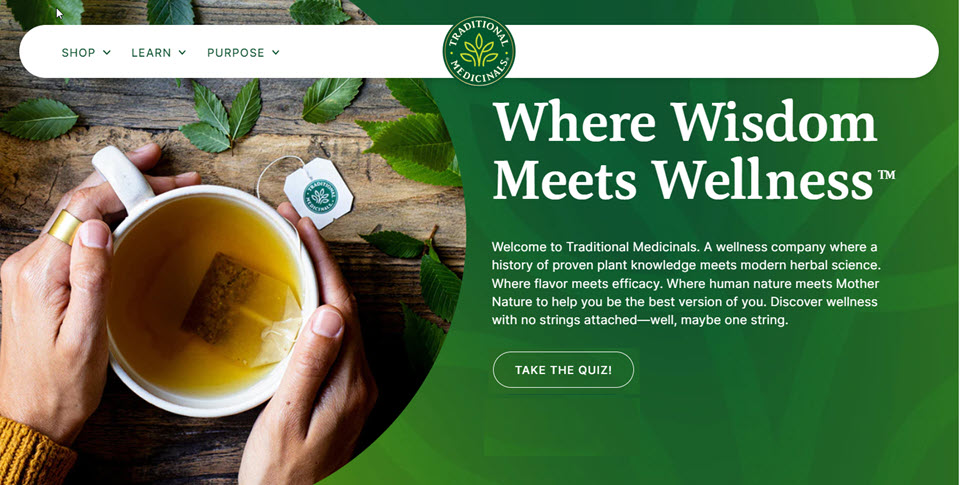
Dan: Renewed interest in herbal infusions and condition-specific and functional teas are trends that will be long-lived. And how do you see the evolution of Traditional Medicinals?
Kristel: We talk a lot about new products within the four walls of Traditional Medicinals. We are rooted in plant medicine and bringing that to the forefront for consumers.
Tea will always be the core of the brand because of its ability to deliver plant medicine in a way that people can consume easily. It also gives you that sense of daily ritual to take care of yourself; tea provides an entire experience.
But as we look to the future, we also see that we can bring plant medicine to consumers in our organic lozenges under the Throat Coat brand, which is already amazing at retail. People recognize the Throat Coat as something that they’ve had in their pantry for years to help with their throat, but now in a more convenient way.
A lozenge is the perfect product, but there are so many more.
The future is this combination of continuing education, fair and ethical sourcing, and finding new ways to bring plant medicine to consumers.
And so, we’re excited. We’ve got a full innovation team thinking up all the different ways to bring these amazing herbs to consumers, make them more accessible, and help them understand the benefits that they can bring.
We categorize our teas in two different areas; we have the ones that we’re most known for: Throat Coat, Smooth Move, and Mother’s Milk; these are all teas that the herbalist formulates. They’re all blends. And they are put together to provide specific medicinal benefits.
But we also have a whole line of what we call single herbs. These we bring straight to the consumer. Peppermint is an example. We educate them on the fact that peppermint is amazing for digestion. We state that on the packaging and discuss the functional benefit each of our teas brings.
Consumers can study the shelves and figure out what they need most in their daily lives. When Traditional Medicinals brought forth these medicinal-rated herbs, they honored traditions passed down for thousands of years. In addition, we explain ethical sourcing and how we respect collectors and producers. We’ve been a leader in the Fairtrade movement.
The next level is our Fair for Life certification, which examines the entire supply chain and how we bring products to market. The emphasis is on “responsible supply chains” that incorporate long-term vision. Fair for Life was created in 2006 by the Swiss Bio-Foundation and taken over by Ecocert in 2014.
As we look to the next 50 years, in addition to educating consumers on plant medicine, we strive to be a role model for other companies doing business in the most ethical way possible. We’re very proud of that.
Photos are courtesy of Traditional Medicinals. Thanks to Kristel for sharing.
Latest Episodes
Powered by RedCircle
Share this post
Episode 151 | Traditional Medicinals is a Northern California-based botanical wellness brand rooted in modern herbalism to inspire active connection to plant wisdom in service of people and the planet. Formulations of more than sixty teas, lozenges, and capsules are strictly limited to science-based botanical ingredients without added flavors and in quantities that meet pharmacopeia standards for efficacy. Chief Marketing Officer Kristel Corson says, “Our teas have been around what seems like forever, but herbals are having their moment, and it is important to educate folks, not just on what has been, but on what medicinal herbalism is today, and it’s very different.”


